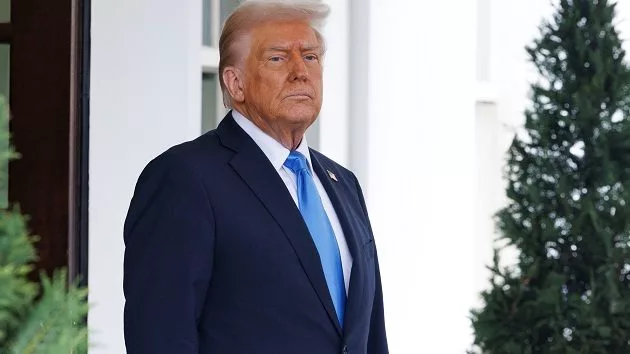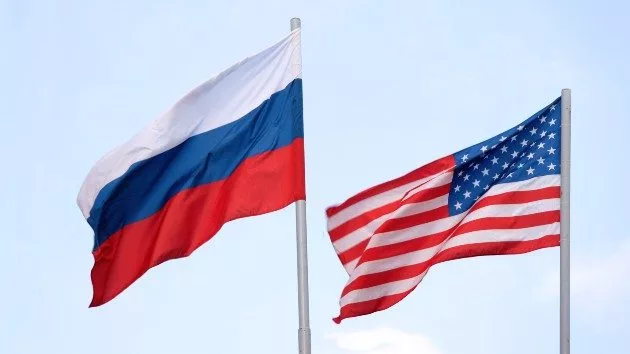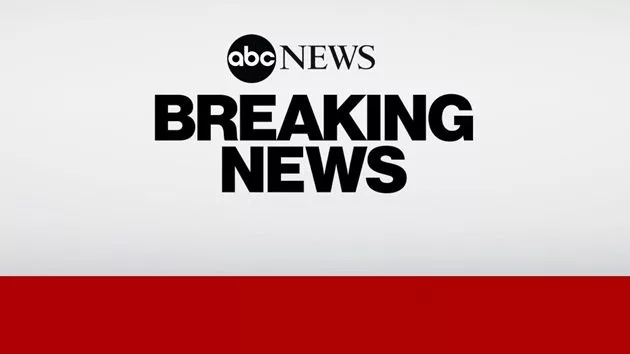
(WASHINGTON) — Despite President Donald Trump’s push for the forcible displacement of Palestinians from Gaza — a move that, if carried out, would be a violation of international law that some experts and U.S. allies have called ethnic cleansing — he is facing significant pushback from allies and states in the region.
There is “zero possibility” that Palestinians will be forcibly displaced from Gaza and into Jordan and Egypt, one expert told ABC News.
“I see no scenario where this happens,” Brian Katulis, a senior fellow for U.S. foreign policy at the Middle East Institute, a nonpartisan think tank, told ABC News. “This is their home. They’ve endured so much to stay in their home, even if their home — literal homes, family homes — have been destroyed.”
“It’s a model that just won’t work in today’s Middle East,” Katulis said, referring to the forced displacement of Palestinians.
“The risk is that [this] comes at a very uncertain time with the ceasefire and hostage release deal on thin ice, and it actually serves to distract from the important work of trying to keep that process moving forward — to get hostages released and much-needed aid into the people … and to actually try to move forward to something that is realistic,” Katulis said.
Trump at one point threatened to withdraw aid to Egypt and Jordan if they didn’t agree to take in Palestinians, though less than 24 hours later, he said, “I don’t have to threaten that, I don’t think. I think we’re above that.”
“The point of this is to ostensibly force Egypt and Jordan to accept all of the Palestinians currently living in the Gaza Strip, so they can engage, so the U.S. can annex the territory. I think it’s safe to say it’s a non-starter for the Saudis,” Daniel Drezner, a professor of international politics at Tufts University’s Fletcher School, told ABC News.
“The Jordanians, in particular, need the money. They’re not oil rich, and same with Egypt, but in some ways the expectation would be that if Trump actually threatened to cut them off, they would likely turn first to Saudi Arabia and the Emiratis,” Drezner said.
Arab nations quickly rejected Trump’s proposal to forcibly displace Palestinians and relocate them in neighboring states, with several calling it a hard line.
“The Foreign Ministry affirms that Saudi Arabia’s position on the establishment of a Palestinian state is firm and unwavering. HRH Prince Mohammed bin Salman bin Abdulaziz Al Saud, Crown Prince and Prime Minister clearly and unequivocally reaffirmed this stance,” Saudi Arabia said last week, just hours after Trump called for the displacement of Palestinians from Gaza.
As much as a bind Jordan is in, it is unlikely that it would accept anything along the lines of what Trump proposed, Drezner said, adding the proposal is worse than losing the $1.5 billion in annual aid that it receives from the U.S.
“The question is the extent to which the Saudis are willing to bankroll both the Jordanians and the Egyptians,” Drezner said.
“Pay attention to how the Gulf states are reacting to all this, because they’re the ones that are simultaneously most likely to be able to resist Trump’s pressures, and also it will send a regional signal to Egypt and Jordan as to what their options are,” Drezner said.
After Trump’s comments, Egypt expressed its support for the legitimate and inalienable rights of the Palestinian people, calling for the need for a two-state solution and the establishment of an independent Palestinian state.
As Trump continued to double down on forcing out the Palestinians, Egyptian President Abdelfatah El Sisi announced he will indefinitely postpone his plan to visit Trump at the White House. According to Saudi-owned Al Arabiya News, Sisi said he won’t attend any White House talks if the displacement of Palestinians in Gaza is on the agenda.
“They’re probably trying to figure out how do they reposition themselves in light of Trump’s incendiary remarks, because they come directly at odds with Egypt’s own positions on this issue and its national security interests. And I don’t think they want to be put in any sort of position to actually directly challenge Trump right now until they assess,” Katulis said.
“[Egypt]’s security aid from the U.S. is part of a package that came out of the Israel-Egypt peace treaty. And if Trump wants to play games with that, he’s actually going to undercut a lot of America’s long-standing traditional security relationships in the region,” Katulis said.
Egypt also announced it plans to host a meeting with Arab states in Cairo later this month where they will discuss a counterproposal.
After meeting with Trump, King Abdullah of Jordan said in a statement he “reiterated Jordan’s steadfast position against the displacement of Palestinians in Gaza and the West Bank. This is the unified Arab position. Rebuilding Gaza without displacing the Palestinians and addressing the dire humanitarian situation should be the priority for all.”
Trump appeared to walk back his threat of withdrawing aid after his meeting this week with King Abdullah resulted in the news that Jordan would take in 2,000 sick Palestinian children for treatment.
“This is a replay of what we’ve seen with regard to threatening Canada and Mexico [with tariffs] — it’s the shining orb strategy. It turns out if you offer Trump like a pretty gaudy but not terribly significant concession, he’ll back down,” Drezner said.
“Jordan can never agree to this — to Trump’s proposal — that would be the end of the regime. And that’s the fundamental thing that I assume someone must have told Donald Trump,” Drezner said.
In addition to opposing the forced displacement of Palestinians, Jordan and Egypt also have strains on their economies and taking in millions of refugees could potentially produce more economic and security challenges.
For the last 20 years, Jordan has faced an influx of refugees from Iraq and Syria, which has strained their economy and their social fabric, according to Katulis.
Egypt’s economy has also faced strains, with the Egyptian pound being depreciated several times in recent years. According to the World Food Programme, from January 2016 to January 2025, the Egyptian pound was devalued by 84.5% relative to the U.S. dollar — a move that governments use to increase its competitiveness or trade balance. And the U.S. dollar appreciated by 543.8% relative to the Egyptian pound during that same time period, based on the official exchange rate, according to the World Food Programme.
Taking in all Palestinians living in Gaza could also pull other countries into a confrontation with Israel, Drezner noted.
“There is no scenario whereby the Palestinians that are displaced are not going to want to return. Essentially, you’re introducing the possibility of violent non-state actors to operate within your territory,” Drezner said.
Other international powers
While Egypt and Jordan are most likely to look to Gulf states for alternate sources of aid, other international actors could also fill a gap created by the U.S. if Trump follows through on his threats.
“I’m not sure Russia is really in all that strong a position, particularly in the Middle East, since they lost their last port [when the regime fell in Syria] and we just saw what happened to Bashar Al Assad. I’m not sure that [Vladimir Putin]’s necessarily a reliable benefactor,” Drezner said.
“It would make much more sense to make a pivot towards China, in no small part because, among other things, China actually has reasons to want to be involved in the region, given their various energy demands,” Drezner said.
But, Jordan and Egypt rely on military supplies from the U.S. and the West.
“The longer-term issue is that you can argue that the militaries in both Jordan and Egypt are a little bit stuck in that they rely primarily on U.S. weaponry. So to engage in a radical pivot means that in some ways you’re also weakening your own coercive apparatus at the same time,” Drezner said.
It would take time before the militaries would be prepared to use weaponry from a different source, and weapons from another source would likely also be incompatible with their existing military stock, according to Drezner.
“It would be hard to pivot to either Russia or China as your primary arms manufacturer,” Drezner said.
Copyright © 2025, ABC Audio. All rights reserved.








